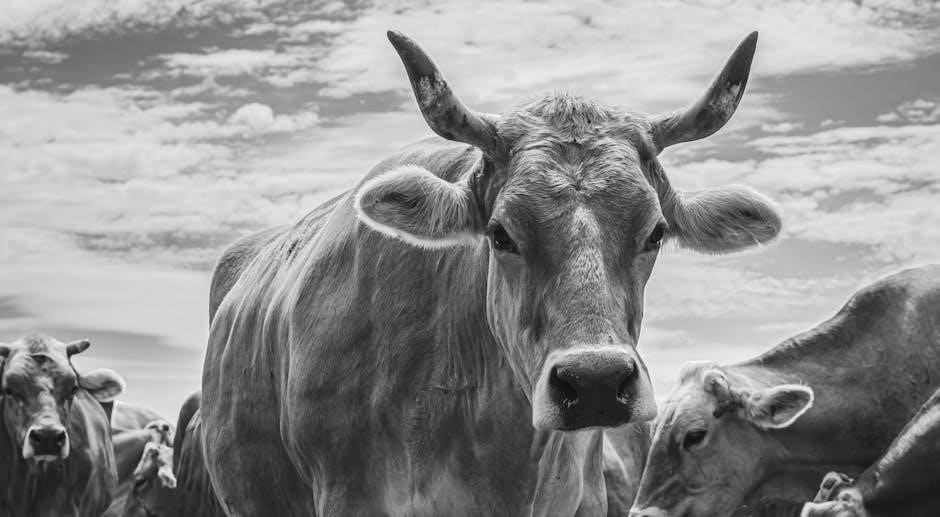
George Orwell’s Animal Farm, published in 1945, is a timeless allegorical novel that explores themes of power, corruption, and equality through the lens of a farm rebellion.
Overview of the Novel
Animal Farm, written by George Orwell, is a gripping allegorical tale that recounts the story of a group of barnyard animals who rebel against their tyrannical owner, Mr. Jones. Renaming the farm Animal Farm, they establish a new order based on equality and justice. However, the pigs, led by power-hungry Napoleon, gradually corrupt the original ideals, leading to a totalitarian regime. The novel explores themes of power, betrayal, and the dangers of unchecked authority, ultimately revealing how revolutions can falter and mimic the systems they initially sought to overthrow. Available in PDF for deeper study.
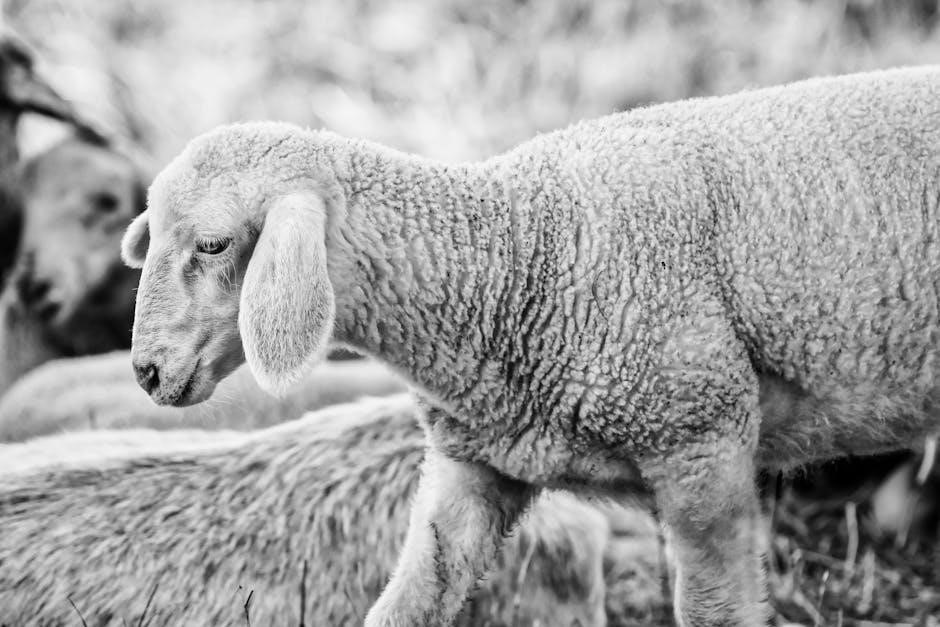
Historical Context and Background
Written during World War II, Animal Farm reflects George Orwell’s critique of totalitarianism, particularly Stalin’s regime. The novel allegorizes the Russian Revolution, with the pigs representing Soviet leaders like Lenin, Trotsky, and Stalin. The story mirrors historical events, such as the rebellion against Mr. Jones (symbolizing the Tsar) and the subsequent power struggles. Orwell, a vocal critic of Stalinism, uses the farm as a backdrop to explore how idealistic movements can devolve into corruption and dictatorship. This context underscores the novel’s timeless relevance in understanding political manipulation and the erosion of ideals. Available in PDF for deeper analysis.
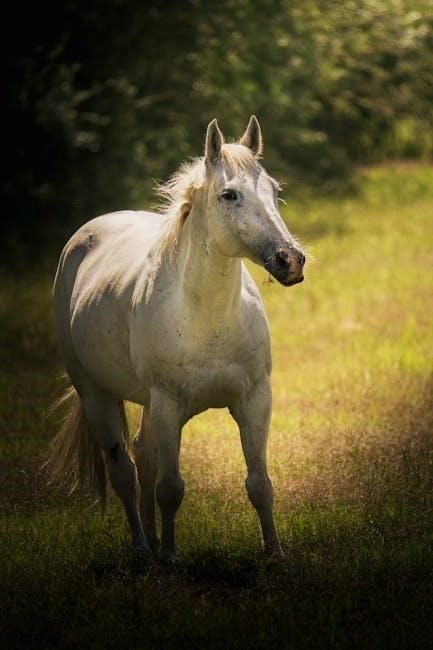
Major Themes in Animal Farm
The novel explores themes of equality, power corruption, education, and deception, highlighting how ideals can be manipulated and distorted by those in control, reflecting real-world political dynamics.
The Struggle for Equality
The novel vividly portrays the animals’ quest for equality, beginning with their rebellion against Mr. Jones and the establishment of the Seven Commandments. Initially, the animals unite under the principle that “All Animals Are Equal,” symbolizing their hope for a fair society. However, as the pigs gradually assume control, they exploit their power, manipulating the commandments to justify their dominance. This shift highlights Orwell’s critique of how ideals of equality can be distorted by those in power, leading to inequality and oppression, mirroring real-world totalitarian regimes.
The Corruption of Power
The pigs, particularly Napoleon, gradually abuse their authority, manipulating the Seven Commandments to justify their dominance. They exploit resources and labor, claiming it’s for the farm’s benefit, while enriching themselves. The pigs’ corruption mirrors the dangers of unchecked power, as they prioritize their own interests over collective equality; This transformation from idealistic leaders to oppressive rulers underscores Orwell’s warning about how power corrupts, even in societies founded on noble principles, leading to exploitation and the erosion of trust among the other animals.
The Role of Education
Education plays a pivotal role in Animal Farm, as it empowers the animals to challenge their exploitation. Snowball teaches the animals to read and write, fostering critical thinking and unity. However, Napoleon disbands these efforts, fearing educated animals might question his authority. The pigs manipulate education to control information, limiting the animals’ understanding and maintaining their power. This highlights how education can be both a tool for liberation and a weapon of oppression, depending on who controls it. The pigs’ actions underscore the importance of knowledge in sustaining or dismantling power structures.
The Danger of Deception
In Animal Farm, deception is a central theme used by the pigs to manipulate and control the other animals. The pigs alter the Seven Commandments and use propaganda to justify their actions, such as Napoleon’s justification for trading with neighboring farms. Squealer, the pigs’ propagandist, distorts the truth to maintain power, eroding the animals’ trust in their leadership. This deception leads to the exploitation of the working-class animals, who become disillusioned and powerless. The novel warns against the dangers of manipulation and the erosion of transparency in leadership. Deception ultimately corrupts the original ideals of the rebellion, leading to a totalitarian regime.
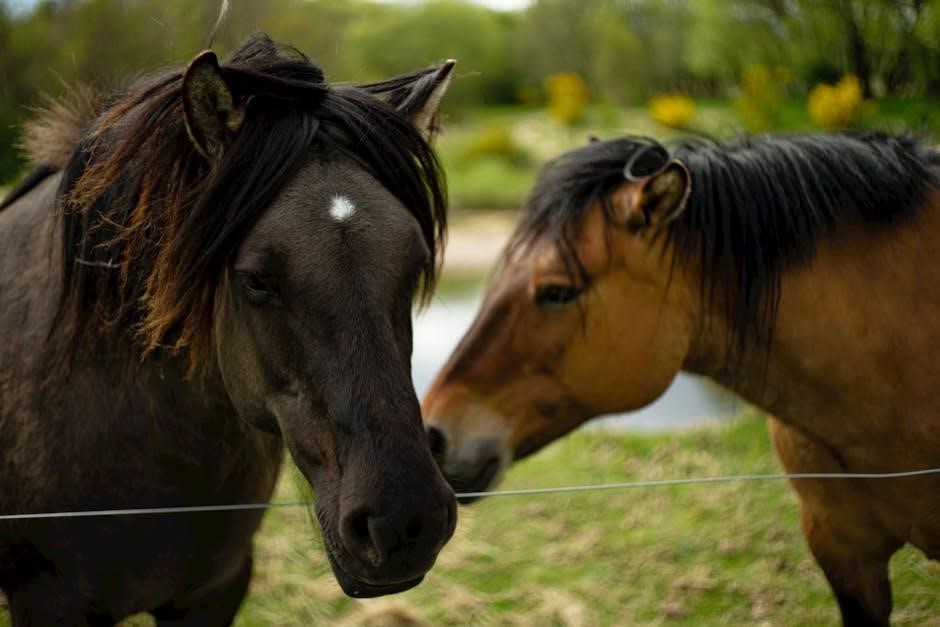
Allegorical Elements
George Orwell’s Animal Farm is a powerful allegory that mirrors historical events through its depiction of a farm rebellion. The novel symbolizes the corrupting influence of power and the dangers of unchecked authority, reflecting real-world political dynamics;
Representation of Historical Events
Animal Farm serves as a powerful allegory for the Russian Revolution and its aftermath. The novel mirrors historical events, such as the overthrow of Tsar Nicholas II, through the rebellion led by the animals. The pigs, symbolizing the Bolsheviks, rename the farm “Animal Farm” and establish the Seven Commandments of Animalism. The power struggle between Napoleon and Snowball reflects the rivalry between Stalin and Trotsky. The gradual corruption of the pigs and their abuse of power echo the rise of totalitarian regimes, offering a critique of how revolutions can fail due to internal corruption and manipulation.
Symbolism in Characters and Objects
In Animal Farm, Orwell employs rich symbolism to convey deeper meanings; The pigs represent the ruling class, with Napoleon and Snowball symbolizing corrupt and idealistic leadership, respectively. The other animals, like Boxer the horse, embody the exploited working class. Objects such as the farmhouse and the pigs’ whips symbolize the corruption of power and the erosion of equality. The Seven Commandments, painted on the barn, serve as a moral framework that is gradually altered, reflecting the manipulation of ideals by those in power to maintain control over the farm.
Key Characters and Their Roles
Napoleon, Snowball, and Squealer are central figures, representing leadership and manipulation. Boxer embodies loyalty, while the pigs symbolize the corrupt ruling class, driving the story’s moral dynamics.
Napoleon and Snowball: Leadership Dynamics
Napoleon and Snowball emerge as contrasting leaders in Animal Farm. Snowball, idealistic and visionary, champions education and collective progress, while Napoleon, cunning and power-hungry, prioritizes control and manipulation. Their rivalry reflects the clash between idealism and authoritarianism, with Napoleon eventually expelling Snowball to consolidate power. This dynamic underscores Orwell’s critique of political corruption and the dangers of unchecked leadership, mirroring historical totalitarian regimes.
The Pigs as the Ruling Class
The pigs in Animal Farm establish themselves as the ruling class, manipulating power to maintain control. Initially, they present themselves as equals, but over time, they exploit their intellectual superiority to justify dominance. Using propaganda and fear, they alter the Seven Commandments to justify their privileges. The pigs’ corruption mirrors historical power dynamics, where leaders prioritize self-interest over collective welfare. Their transformation from revolutionary allies to oppressive rulers highlights Orwell’s critique of how power corrupts even the most idealistic movements. The pigs’ reign exemplifies the dangers of unchecked authority and class stratification.
The Proletariat: Other Farm Animals
The other farm animals in Animal Farm represent the working class, exploited and manipulated by the pigs. They are divided into different groups, each with unique roles but collectively oppressed. The horses, Boxer and Clover, symbolize hardworking laborers, while the sheep and chickens embody the vulnerable masses. Their lack of education and unity makes them susceptible to manipulation. Despite their initial hope for equality, they become disillusioned as the pigs consolidate power, highlighting the struggle of the proletariat in totalitarian regimes and the loss of revolutionary ideals. Their plight underscores Orwell’s critique of social inequality and exploitation.
Plot Summary and Key Events
Animal Farm begins with a rebellion led by pigs, who overthrow Mr. Jones and rename the farm. The Seven Commandments of Animalism are established, but corruption emerges as the pigs gradually abuse their power, leading to oppression and disillusionment among the other animals, mirroring real historical events and societal struggles.
The Rebellion and Founding of Animal Farm
The rebellion on Manor Farm, led by the pigs Snowball and Napoleon, was sparked by Old Major’s vision of a utopian society free from human oppression. After Mr. Jones’ drunken neglect, the animals rose up, driving him off and renaming the farm Animal Farm. The pigs, now in charge, established the Seven Commandments of Animalism, aiming to create a fair and equal society. However, this marked the beginning of a journey fraught with power struggles and corruption, setting the stage for the novel’s exploration of ideals and their demise.
The Seven Commandments of Animalism
The Seven Commandments of Animalism, painted on the barn wall, were the foundational principles of the rebellion. They included prohibitions against engaging in human behaviors, such as walking on two legs or carrying a whip. The most central tenet was “All animals are equal.” These commandments, developed by the pigs, aimed to guide the animals toward a utopian society free from oppression. However, over time, the pigs altered the commandments to justify their growing power, culminating in the infamous revision: “All animals are equal / But some animals are more equal than others.”
The Battle of the Cowshed
The Battle of the Cowshed was a pivotal event in Animal Farm, marking a decisive victory for the animals against Mr. Jones and his allies. Led by Snowball, the animals defended their farm with courage and unity. This triumph solidified their independence and reinforced their belief in Animalism. The battle became a symbol of resistance and a source of pride, celebrated annually as a reminder of their struggle for freedom and self-determination.
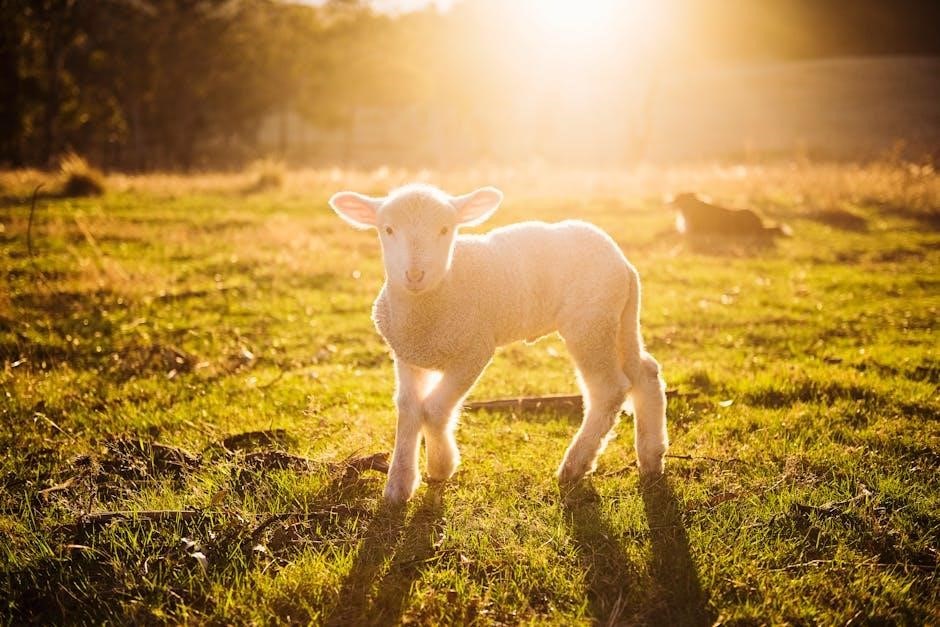
Symbolism and Metaphors
In Animal Farm, the pigs’ whips symbolize oppressive authority, while the farm itself represents society. These metaphors critique corrupt power and societal hierarchies, reflecting Orwell’s political commentary.
The Farm as a Microcosm of Society
Animal Farm serves as a microcosm of society, illustrating how power dynamics, class struggles, and corruption mirror human experiences. The pigs, representing the ruling elite, manipulate the system for control, while other animals symbolize the working class, often exploited and misled. The farm’s structure reflects societal hierarchies, with the pigs’ manipulation of the Seven Commandments highlighting how those in power alter rules to maintain dominance. This allegory critiques totalitarian regimes and the erosion of equality, offering a universal lesson on the dangers of unchecked authority and deception. The farm’s transformation mirrors the cyclical nature of societal oppression.
The Significance of the Whips
The whips in Animal Farm symbolize fear, control, and the pigs’ manipulation of power. Initially, the animals view the whips as a symbol of liberation from Mr. Jones, but they later become tools of intimidation used by Napoleon and the pigs to enforce obedience. This transformation reflects the corruption of power, as the pigs use fear to maintain their dominance; The whips also represent the erosion of the animals’ initial ideals of equality and freedom, highlighting Orwell’s critique of how totalitarian regimes exploit fear to sustain control over their subjects.
Resources for Further Study
Download PDF versions of Animal Farm for in-depth analysis. Explore study guides and educational materials, including activity packs and teacher resources, to enhance understanding of the novel.
PDF Versions and Downloads
PDF versions of Animal Farm are widely available for download, offering readers a convenient way to access the novel. These digital editions are ideal for in-depth study and analysis, providing clear formatting and readability. Many educational websites and e-book platforms offer free or paid downloads, ensuring easy access to Orwell’s timeless allegory. Additionally, PDFs often include supplementary materials, such as study guides and annotations, enhancing the learning experience; Downloading a PDF version allows readers to highlight and annotate key passages, making it a valuable resource for students and scholars alike.
Study Guides and Educational Materials
Study guides and educational materials for Animal Farm provide comprehensive analysis and insights into the novel’s themes, characters, and historical context. These resources include chapter summaries, discussion questions, and essay topics, helping students grasp Orwell’s allegorical narrative. Many PDF guides offer detailed explanations of key symbols, such as the Seven Commandments and the pigs’ rise to power. Educators and students can access these materials from reputable sources, including university websites and literary databases, enhancing their understanding of the novel’s enduring relevance to political and social issues.